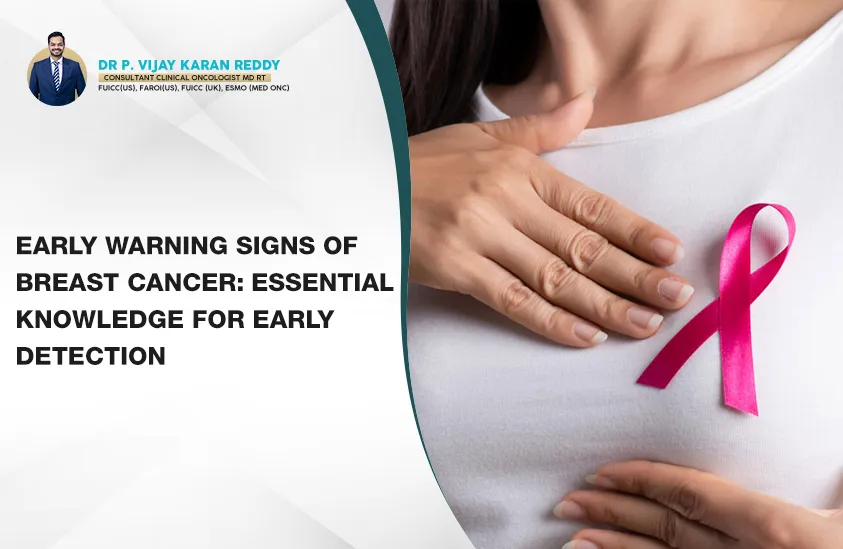Breast cancer is a critical health concern worldwide, affecting millions of women each year. Early detection is key to improving survival rates and outcomes, making it crucial to be aware of the early warning signs. In this comprehensive guide, we delve into the signs and symptoms of breast cancer, empowering you with the knowledge to take proactive steps towards your health.
Understanding Breast Cancer
Breast cancer develops when cells in the breast grow uncontrollably, forming a tumor that can often be seen on an x-ray or felt as a lump. It is vital to understand that early detection through awareness of warning signs and regular screening can significantly improve treatment success.
Key Signs and Symptoms
Be vigilant for these early warning signs:
Lump in the Breast or Underarm: A lump or thickening in the breast or underarm area can be a sign of breast cancer. These lumps are often painless but should never be ignored.
Change in Breast Size or Shape: Any alteration in the size or shape of the breast should prompt further investigation.
Skin Changes: Look out for dimpling, puckering, or scaling of the breast skin, which might resemble an orange peel's texture.
Nipple Changes: This includes inversion or retraction of the nipple, along with redness, scaling, or discharge that is not breast milk.
Persistent Pain: A constant pain in the breast or armpit, unrelated to menstrual cycles, should be evaluated.
Risk Factors to Consider
While being aware of the signs is crucial, understanding risk factors is equally important:
Age: The risk increases as you age, with most cases diagnosed in women over 50.
Genetics: A history of breast cancer in the family, particularly in a mother, sister, or daughter, can elevate your risk.
Lifestyle Factors: Smoking, excessive alcohol consumption, and obesity are known risk factors.
Hormonal Factors: Early menstruation, late menopause, and certain hormonal therapies can increase risk.
The Importance of Regular Screening
Regular mammograms are the most reliable method to detect breast cancer early. Women over 40 or those at higher risk should discuss their screening schedule with a healthcare provider.
Self-Examination: A Vital Practice
Self-examination plays a crucial role in early detection. Familiarize yourself with the normal look and feel of your breasts and report any changes to a healthcare professional immediately.
Lifestyle Modifications for Prevention
Adopting a healthy lifestyle can reduce the risk of breast cancer. This includes maintaining a healthy weight, engaging in regular physical activity, limiting alcohol intake, and avoiding smoking.
Conclusion
Awareness of the early warning signs of breast cancer and proactive health practices are your best defense against this disease. Early detection through regular screenings and self-examinations can significantly improve outcomes, making it imperative to stay informed and vigilant. Recognizing this, Dr. Vijay Karan Reddy at Arete Hospitals, renowned as one of the Best Oncologists in Hyderabad, emphasizes the importance of early detection strategies.
We encourage all women to take charge of their health by being aware of the signs and engaging in regular screening practices. Under the expert guidance of Dr. Vijay Karan Reddy, whose expertise and compassionate care have established him as a leading figure in oncology in Hyderabad, patients can access comprehensive support and cutting-edge treatments. Together, we can combat breast cancer with knowledge and early detection, leveraging the skills of top medical professionals like Dr. Reddy to guide us in this vital health journey.


